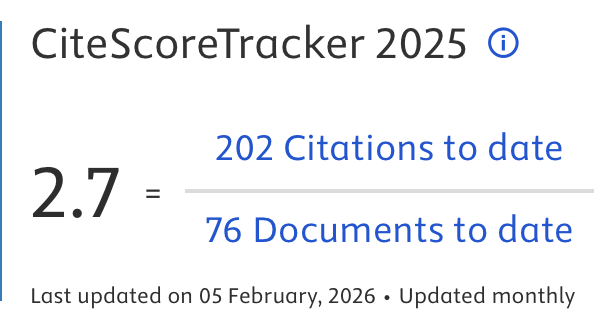UMMATAN WASAṬAN MENURUT M. QURAISH SHIHAB DALAM TAFSIR AL-MISBAH DAN RELEVANSINYA DENGAN NILAI-NILAI PANCASILA
DOI:
https://doi.org/10.14421/qh.2019.2002-06Keywords:
M. Quraish Shihab, Ummatan Wasatan, ModeratAbstract
Quran idealizes Muslims as ummatan wasaṭan, but in reality Muslims are still far from the idealism of the Quran. This article discusses the ummatan wasaṭan according to Quraish Shihab in Tafsir al-Misbah. The aim is to find out the interpretations and concepts of ummatan wasaṭan according to Quraish Shihab, as well as the relevance of their interpretation to the values of Pancasila. This research is a library research. This research uses documentation techniques and descriptive-analytical methods. This research also uses the comparison method. The results of this study found that: according to Quraish Shihab, ummatan wasaṭan were moderate people, who were not inclined to the left and right so that led to a fair attitude, and the people who became witnesses and were witnessed by all parties so that he was made an example. The characteristics of ummatan wasaṭan according to Quraish Shihab are eight. (a) Faith in Allah and His Messenger; (b) Firmness; (c) Wisdom; (d) Unity and cohesion and brotherhood; (e) Justice; (f) Modeling; (g) Balance; and (h) Inclusive. M. Quraish Shihab’s interpretation of ummatan wasaṭan is relevant to the values of Pancasila as the basis of the Republic of Indonesia.
Keywords: M. Quraish Shihab, Ummatan Wasaṭan, Moderate
References
Bâqî (al), Muḥammad Fu‘ad ‘Abd. Mu‘jam al-Mufahrâz li Alfâẓ al-Qur’an al-Karîm. Beirut: Dâr al-Fikr, 1981.
Chairunnisa’, Ninis. “Radikalisme di Indonesia, Azyumardi Azra: Perlu Sertifikasi Ustad” dalam https://nasional.tempo.co/read/1105496/radikalisme-di-indonesia-azyumardi-azra-perlu-sertifikasi-ustad/full&view=ok/diakses 29 Desember 2018.
Chirzin, Muhammad. Kontroversi Jihad Modernis versus Fundamentalis (Rasyid Ridha dan Sayyid Quthb). Yogyakarta: Pustaka Pelajar, 2018.
Karim, M. Abdul. Islam Nusantara. Yogyakarta: Pustaka Book Publisher, 2007.
Muchtar, M. Ilham. “Ummatan Wasathan dalam Perspektif Tafsir al-Thabary”, Pilar: Jurnal Ilmu-Ilmu Agama Kontemporer, Vol. 2, No. 2. Februari 2017.
Nasir, Haedar. “Indonesia itu Bernyawa” dalam https://republika.co.id/berita/pwfd2h257/indonesia-itu-bernyawa/diakses 18 Agustus 2019.
Nasir, Haedar. Islam Syariat: Reproduksi Salafiyah Ideologis di Indonesia. Bandung: Mizan, 2013.
Nurdin, Ali. Quranic Society: Menelusuri Konsep Masyarakat Ideal dalam al-Qur’an. Jakarta: Erlangga, 2006.
Qurṭubî (al), Muḥammad bin Aḥmad. al-Jâmi’ li Aḥkâm al-Qur’an. Kairo: Dâr al-Kutb al-Ilmiyah, 1964.
Rahardjo, M. Dawam. Ensiklopedia al-Qur’an: Tafsir Sosial berdasarkan Konsep-konsep Kunci. Jakarta: Paramadina, 1996.
Sahal, Akhmad dan Munawir Aziz (ed.). Islam Nusantara: dari Ushul Fiqh hingga Paham Kebangsaan. Bandung: Mizan, 2016.
Said, Muhammad. Peranan Islam dalam Penghayatan, Pengamalan, dan Pengamanan Pancasila. Jakarta: Departemen Agama RI, 1985.
Shihab, M. Quraish. Tafsir al-Misbah: Pesan, Kesan dan Keserasian al-Qur’an. Jakarta: Lentera Hati, 2002.
Shihab, M. Quraish. Wawasan al-Qur’an: Tafsir Tematik atas Pelbagai Persoalan Umat. Bandung: Mizan, 1996.
Syakir, Aḥmad. Mukhtaṣar Tafsîr Ibn Kathîr. Jakarta: Dâr al-Sunnah, 2012.
Zuhaylî (al), Wahbah bin Muṣṭafâ. Tafsîr al-Munîr. Damaskus: Dâr al-Fikr al-Ma’âṣir, 1418 H.
Downloads
Published
Issue
Section
License
Publishing your paper with Jurnal Studi Ilmu-ilmu al-Qur'an dan Hadis means that the author or authors retain the copyright in the paper. Jurnal Studi Ilmu-ilmu al-Qur'an dan Hadis uses license CC-BY-NC-ND or an equivalent license as the optimal license for the publication, distribution, use, and reuse of scholarly works. This license permits anyone to copy and redistribute the material in any medium or format and must give appropriate credit, provide a link to the license, and indicate if changes were made. If you remix, translate, transform or build upon the material you may use it for private use only and not for distribution. Jurnal Studi Ilmu-ilmu al-Qur'an dan Hadis granted an exclusive non-commercial reuse license by the author(s), but the author(s) are able to put the paper onto a website, distribute it to colleagues, give it to students, use it in your thesis, etc, so long as the use is not directed at a commercial advantage or toward private monetary gain. The author(s) can reuse the figures and tables and other information contained in their paper published by Jurnal Studi Ilmu-ilmu al-Qur'an dan Hadis in future papers or work without having to ask anyone for permission, provided that the figures, tables, or other information that is included in the new paper or work properly references the published paper as the source of the figures, tables or other information, and the new paper or work is not direct at a private monetary gain or commercial advantage.
Jurnal Studi Ilmu-ilmu al-Qur'an dan Hadis journal Open Acces articles are distrubuted under the Creative Commons Attribution-NonCommercial-NoDerivatives 4.0 International (CC BY-NC-ND 4.0). Article can be read, copy and redistribute the material ini any medium or format under the following conditions:
Attribution — You must give appropriate credit, provide a link to the license, and indicate if changes were made. You may do so in any reasonable manner, but not in any way that suggests the licensor endorses you or your use.
NonCommercial — You may not use the material for commercial purposes.
NoDerivatives — If you remix, transform, or build upon the material, you may not distribute the modified material.










